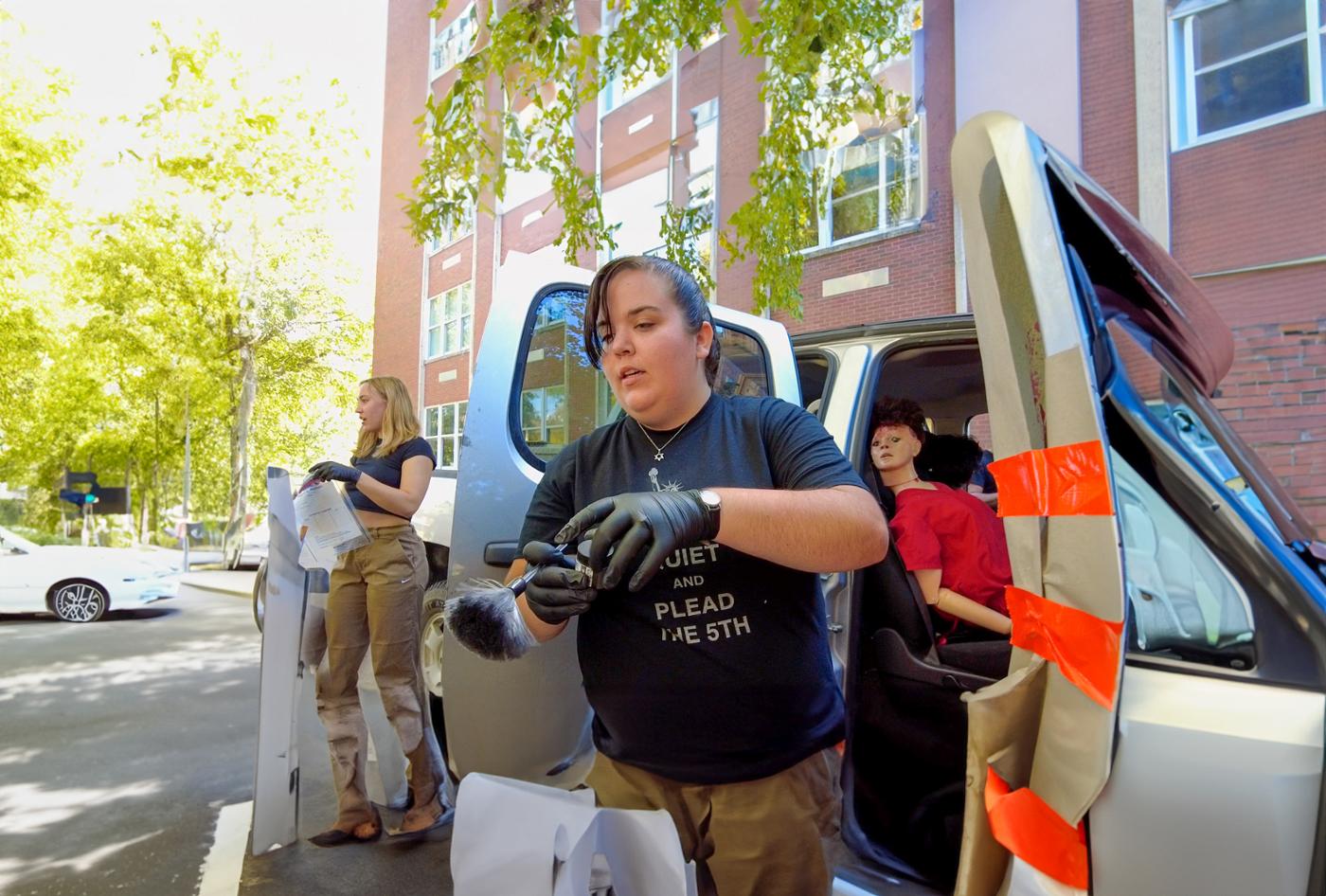Criminal Justice Major
Investigate, prosecute, and advocate for justice. Our students gain skills in crime prevention, law enforcement tactics, and navigating legal systems. Engage in hands-on simulations to sharpen analytical skills and foster critical thinking.Comprehensive Curriculum
Our program covers a broad spectrum of criminal justice topics, including sociology, criminal law, forensic science, and psychology. Students receive a well-rounded education that prepares them for various roles within the criminal justice system.
Hands-On Learning
Students participate in simulated activities and fieldwork, allowing them to apply theoretical concepts in practical settings.
Community Engagement
Our program values community involvement. We partner with local law enforcement agencies, nonprofits, and legal organizations.
Expert Faculty
Our professors have had careers in the field of criminal justice. They bring a wealth of knowledge, practical experience, and up-to-date insights into the classroom.
Forensic Investigation of Unattended Death
Students practice lifting fingerprints, collecting gunshot residue, and analyzing evidence to determine the nature of a tragic incident involving two deceased individuals in a vehicle.Criminal Justice Careers
Play an essential role in maintaining public safety, upholding the law, and ensuring justice prevails. Our criminal justice graduates find careers in the following:
- Police Officers and Detectives: Enforce laws, conduct investigations, patrol assigned areas, apprehend suspects, and maintain public safety.
- Probation and Parole Officers: Supervise offenders, develop rehabilitation plans, conduct home visits, monitor compliance, and support reintegration into society.
- Lawyers, Prosecutors, and Defense Attorneys: Advocate for clients, represent in legal proceedings, analyze cases, negotiate settlements, and litigate in court.
- Homeland Security and Intelligence: Analyze threats, develop security protocols, collaborate with agencies, gather intelligence, and protect national interests.
- Victim Advocacy and Social Services: Support victims, provide counseling, guide them through legal processes, connect to resources, and advocate for their rights.
- Crime Scene Analysts: Collect and analyze evidence, document crime scenes, perform forensic tests, and present findings in court.
- Education and Training in Criminal Justice: Instruct students, design educational programs, facilitate training sessions, and mentor aspiring professionals in criminal justice.
Each of these careers offers a unique opportunity to contribute to society and make a meaningful impact within the realm of criminal justice.
Emphases available
Unravel societal influences on crime, law, and justice systems. Understand the interplay of social factors, policies, and behaviors shaping our legal landscape.
Explore the complexities of crime and justice. Gain insight into criminal behavior, law enforcement, and criminal justice systems.
